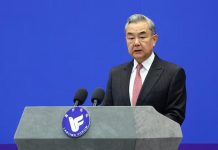Africa-Press – Kenya. CBK has retained the Central Bank rate at 8.75 per cent following the Monetary Policy Committee meeting held on Monday. This means banks will continue advancing credit at an average of 14 per cent.
In a statement after its latest Monetary Policy Committee (MPC) meeting on Monday, the banking regulator said there has been a decline in global commodity prices, easing of inflationary pressures and monetory measures taken by authorities in response to these developments.
The MPC noted that inflation decreased to 9.1 per cent in December 2022 from 9.5 per cent in November mainly due to lower food prices. Food inflation declined to 13.8 per cent in December from 15.4per cent in November, driven by a decrease in prices of maize and milk products.
Fuel inflation declined to 12.7 per cent in December 2022 from 13.8 per cent in November, due to lower international oil prices. “However, it remains elevated on account of the scaling down of the fuel subsidy and increases in electricity prices due to higher tariffs,” the statement signed by CBK governor Patrick Njoroge said.
The committee further expects the inflation levels to decline in the near term, also supported by the recently announced government measures to allow duty-free imports of key food items particularly maize, rice and sugar.
Released GDP data for the third quarter of 2022 shows that the country’s economy registered strong growth in 2022. Real GDP grew by 4.7 per cent in the third quarter of 2022, mainly driven by robust activity in wholesale and retail trade, education, electricity and water and real estate sectors.
Therefore, GDP is estimated to have grown by about 5.6 per cent in 2022 with the committee expecting the economic prospects to remain resilient this year. This will be supported by a continued strong performance of the services sector and expected recovery in agriculture, despite global uncertainties.
Surveys conducted by the MPC prior to the meeting: The CEOs Survey and Market Perceptions Survey revealed sustained optimism about business activity and economic growth prospects for the next 12 months.
The optimism was attributed to the continued resilience of the private sector and the impact of government interventions. The respondents noted that agriculture and Micro, Small and Medium-sized Enterprises (MSMEs) sectors, are expected to majorly support employment this year and drive growth.
Despite the easing of inflationary pressures, the respondents are reported to still being concerned about domestic inflation as they expect it to ease in the coming months.
Additionally, their concerns about global recession and inflation have moderated. The Survey of the Agriculture Sector revealed that prices of most food items were expected to decline or remain unchanged in February 2023.
However, the respondents identified high input costs and unpredictable weather conditions as the major factors constraining production. The statement further notes that goods exports have remained strong, growing by 10.9 per cent in 2022 compared with 2021.
Receipts from tea and manufactured goods exports increased by 16.1 per cent and 22.1 per cent respectively during the period. Remittances totaled $4,028 million in 2022, and were 8.3 per cent higher compared to 2021.
Against these developments, the current account deficit is now estimated at 4.9 per cent of GDP in 2022 and is projected at 5.4 per cent of GDP this year.
CBK’s foreign exchange reserves, which currently stand at $7,005 million (3.92 months of import cover), continue to provide adequate cover and a buffer against any short-term shocks in the foreign exchange market.
The banking sector is said to have remained stable and resilient, with strong liquidity and capital adequacy ratios. The ratio of gross non-performing loans (NPLs) to gross loans stood at 13.3 per cent in December 2022, compared to 13.8 per cent in October.
The sector registered a strong performance in the year ended December 31, 2022, with the asset base increasing by 10 per cent from Sh6 trillion at end of 2021 to Sh6.6 trillion.
The performance was supported by banks reviewing their business models leveraging on technology and innovation, enhanced capital and liquidity buffers and a continued focus on customer-centricity. Growth in private sector credit increased to 12.5 per cent in 2022 compared to 8.6 per cent in 2021.
The following sectors were noted to have recorded strong growths: Manufacturing (13.8 per cent), transport and communication (23.5 per cent), trade (11.4 per cent), business services (13.7 per cent), and consumer durables (12.9 per cent).
The number of loan applications and approvals increased, reflecting improved demand with increased economic activities. The committee noted the ongoing implementation of the FY2022/23 Government Budget, particularly the recent strong tax revenue collection reflecting enhanced tax administration efforts and increased economic activity.
The proposed FY2022/23 Supplementary Budget, and rationalisation of expenditure which is expected to support the envisaged fiscal consolidation in the medium term, were also noted. The committee will meet again in March 2023.
For More News And Analysis About Kenya Follow Africa-Press






